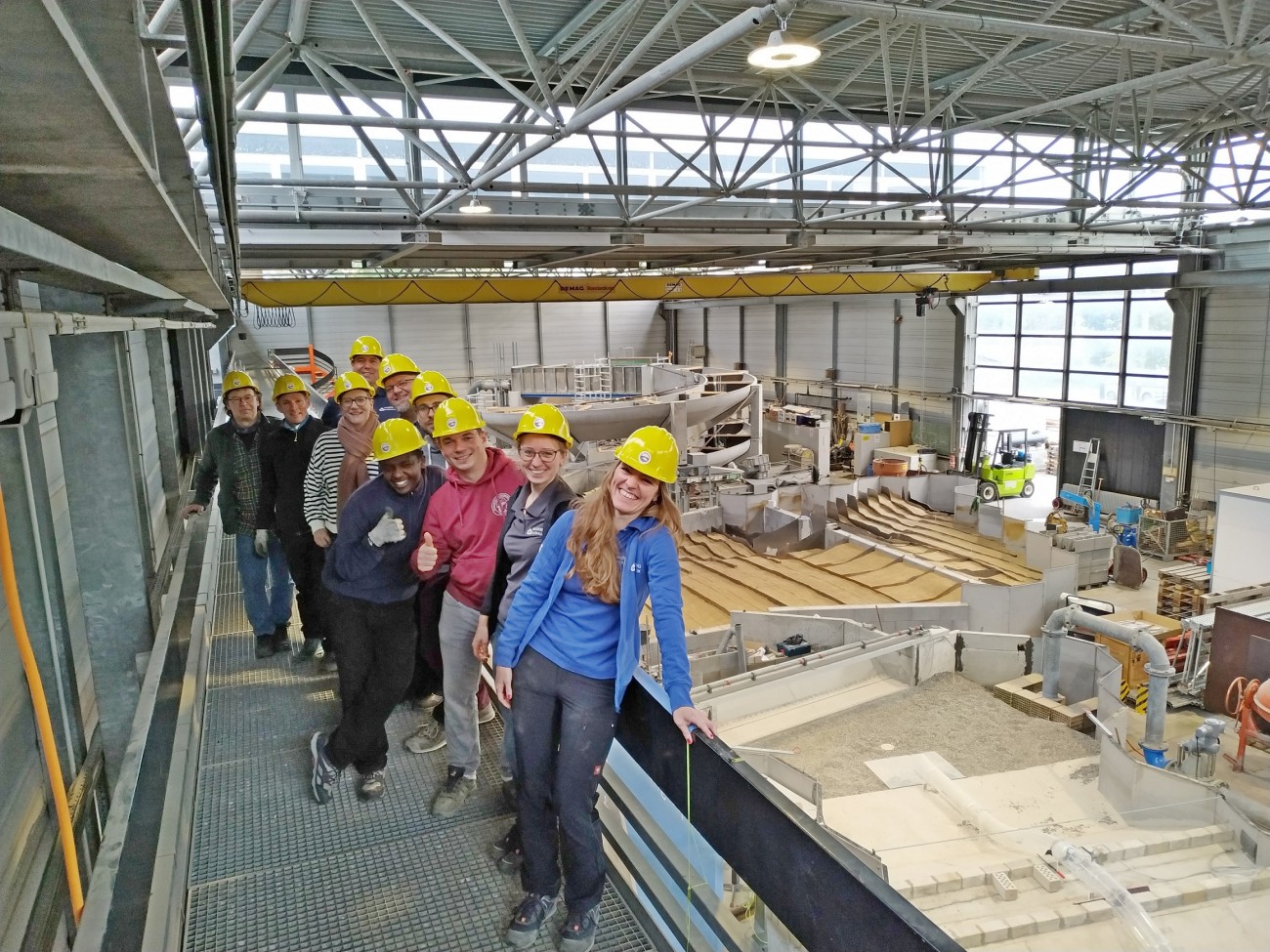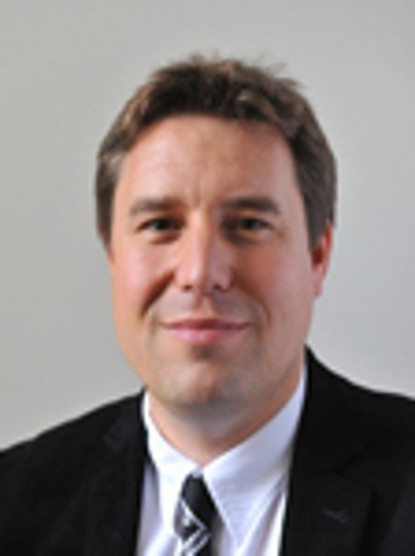Prof. Dr.-Ing. habil. Boris Lehmann
Head of the Chair of Hydraulic Engineering
Contact
wabau@wb.tu-...
work +49 6151 16-21165
Work
L5|01 310
Franziska-Braun-Straße 7
64287
Darmstadt
Here you can find all office hours
- Technical hydraulics in hydraulic engineering plants: basic, research, practical transfer
- Research, development and application of hydraulic engineering experiments
- Hydraulic models of structures and surfaces
- Solid transport and multiphase models
- Air models, model families
- Hybrid modelling methods (coupling of numerical and physical models)
- Adaptive-automated model control and regulation
- Numerical model applications and simulations in hydraulic engineering
- One-, two- and three-dimensional flow simulations
- Simulation of multiphase flows (water-solids)
- Sea state simulation
- Flood protection and hydropower use: concepts, planning, operational use
- Research and development in the multidisciplinary fields of ecohydraulics
- Ethohydraulics studies on fish behaviour in given hydraulic situations
- Research and development of facilities for the establishment of river continuity: Fish ascent, protection and descent
- Planning, implementation and evalutation or monitoring of watercourse development and renaturation projects
- 1992 – 1998 Study of Civil Engineering at the University of Karlsruhe with Diploma Degree
- 1994 – 1999 Engineering office Dr.-Ing. Karl Ludwig in Karlsruhe
- 1999 – 2000 State Institute for Environmental Protection Baden-Württemberg in Karlsruhe
- 2000 – 2005 Scientific assistant at the Institute for Water Management and Cultural Engineering at the University of Karlsruhe
- 2005 Completion of the dissertation at the Faculty of Civil Engineering, Geosciences and Environmental Sciences at the University of Karlsruhe with the topic Recommendations for near-natural watercourse development in urban areas – under consideration of flood safety
- 2005 – 2007 Head of the Department “hydraulic Engineering and Watercourse Development” at the Institute for Water and Watercourse Development at the University of Karlsruhe
- 2008 – 2013 Deputy Director and Head of the Theodor-Rehbock Hydraulic Engineering Laboratory at the Institute for Water and Watercourse Development of the Karlsruhe Institute of Technology
- 2012 Successful completion of the habilitation in the field of “Hydraulic Engineering” with the habilitation thesis “Zur wissenschaftlichen Weiterentwicklung des wasserbaulichen Versuchswesens” at the Faculty of Civil Engineering, GEO and Environmental Sciences at the Karlsruhe Institute of Technology
- 2013 Awarded the status of private lecturer for the field of hydraulic at the Karlsruhe Institute of Technology
- 2013 Head of the Department of Hydraulic Engineering with associated hydraulic engineering research laboratory at Darmstadt University of Technology
Teaching and research in hydraulic engineering represents for me an important pillar of civil and environmental engineering. Along with the changes in socio-political and environmental goals and the underlying ecological demands on our cultural landscapes, hydraulic engineering is undergoing a paradigm shift: in both utility and protective hydraulic engineering, it is essential to take water ecology concerns into account centrally in planning and projects,
This requires a wide-ranging education in hydraulic engineering, from the basics of hydromechanics and hydraulics to structural hydraulic engineering and near-natural watercourse development, nature-compatible flood protection and ecologically compatible hydropower utilisation. My motivation as head of department is to lead and accompany this training.
Today, the transdisciplinary intersection of engineering and natural science approaches results in complex and specialized design and planning specifications for the practicing hydraulic engineer, which are formed from physically correct, empirical and/or statistical formula bases and whose application always leads to target-oriented results only with appropriate experience. Within the framework of my teaching, I would like to convey these methods and their areas of application to prospective hydraulic engineers and encourage the exploration of existing gaps.
The Department of Hydraulic Engineering is therefore dedicated to the education of young hydraulic engineers. In addition to an extensive range of courses, current research tasks are also being worked on within the framework of ongoing doctoral theses, both in the basic area and in practical engineering applications.


